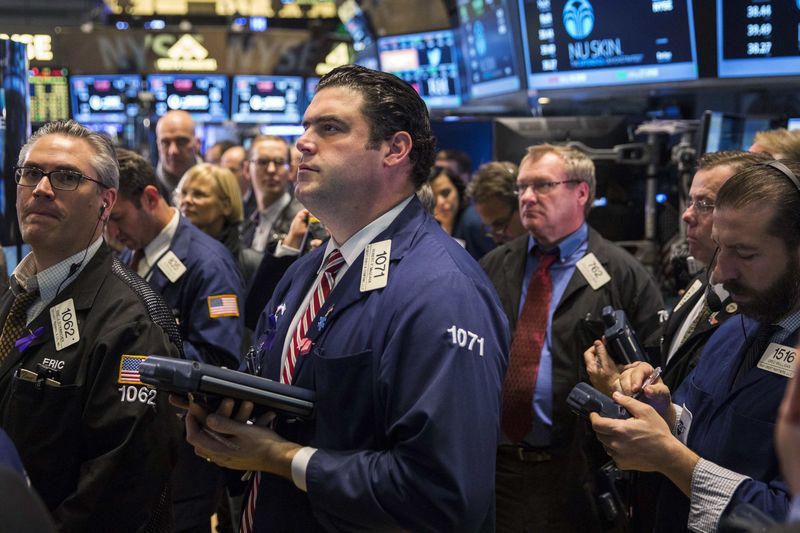* Graphic: World FX rates in 2020 http://tmsnrt.rs/2egbfVh
* U.S. stock futures lower
* European shares fall
* U.S. two-year, 10-year Treasuries hit record lows
* Dollar dips against yen, Swiss franc
By Ritvik Carvalho
LONDON, March 6 (Reuters) - Global stock markets tumbled and government bonds rallied on Friday as disruptions to business from the spreading coronavirus epidemic worsened, stoking fears of a prolonged economic slowdown.
European shares opened sharply lower, with travel stocks bearing the brunt. The pan-European STOXX 600 index was down 3.5% by midday in London, reaching its lowest level in more than six months .EU
Germany's DAX .GDAXI slid 3.5%, Britain's FTSE 100 .FTSE fell 3.2% and France's CAC 40 .FCHI fell 3.7%. The MSCI All-Country World Index .MIWD00000PUS , which tracks shares across 49 countries, was down 0.84%.
After their worst weekly performance since the 2008 financial crisis, global stocks measured by the MSCI index are up 1.7% this week, as policymakers provided stimulus to combat the economic effects of the virus.
Yields on U.S. Treasuries fell to record lows and Treasury futures jumped as investors increased bets the Federal Reserve will follow this week's surprise rate cut with further easing.
The yield on benchmark 10-year Treasury notes US10YT=RR fell to a record low of 0.6950% on Friday. The two-year equivalent fell to 0.4510%. US2YT=RR
The Fed made an emergency interest rate cut of 50 basis points earlier this week. The Bank of Canada and the Reserve Bank of Australia also cut rates, with investors expecting other major central banks to follow suit soon.
Officials and companies in Britain, France, Italy and the United States are struggling to deal with a steady rise in virus cases that have in some cases triggered corporate defaults, office evacuations, and panic buying of daily necessities. interplay of virus containment fears and stimulus measures means that in the near term we expect market volatility to persist," said Mark Haefele, chief investment officer at UBS Global Wealth Management.
Money markets are pricing in another 25 basis-point-cut from the current 1% to 1.25% range at the next Fed meeting on March 18-19 and a 50-basis-point cut by April. Minneapolis Federal Reserve President Neel Kashkari said late on Thursday the Fed could cut rates further if needed. benchmark 10-year Bund yield fell to a six-month low, within striking distance of last year's record lows. GVD/EUR
The flu-like virus emerged late last year in central China and has since spread to more than 80 countries. More than 3,000 people have died. Travel restrictions and factory closings aimed at curbing the spread of the virus are expected to pressure global growth.
Many investors were awaiting the release of U.S. non-farm payrolls later on Friday. Recent U.S. economic data have been encouraging, but concerns about coronavirus are likely to overshadow any signs of a strong labour market.
Earlier in Asia, MSCI's broadest index of Asia-Pacific shares outside Japan .MIAPJ0000PUS fell 2.05%. Japan's Nikkei stock index .N225 sank 2.94%. Australian shares .AXJO were down 2.44%.
Shares in China CSI300. fell 1.22%. Stocks in Hong Kong .HIS , another city hard hit by the virus, fell 2.12%.
In currencies, rapidly falling yields hammered the dollar The index that measures the dollar's strength against a basket of other currencies, was down 0.7%. USD= FRX/
Against the Japanese yen JPY= , the dollar fell to a six-month low and was last at 105.29 yen. It sank to a two-year trough of 0.9347 Swiss franc CHF=EBS .
"The driver is the equity markets and the collapse in U.S. bond yields this week," said Kenneth Broux, FX strategist at Societe Generale (PA:SOGN).
"It's been a knee-jerk reaction. What we have now is a reversal simply on the declining U.S. equities and the compressing differential. FRX/
The euro EUR=EBS gained 0.8% to trade at $1.1328. Markets in the euro zone are pricing in a 93% chance that the European Central Bank will cut its deposit rate, now minus 0.50%, by 10 basis points next week.
Oil prices slid more than 4% to their lowest since July 2017 after Reuters reported that Russia would not agree to steeper cuts in oil output to support prices.
By 1153 GMT, Brent crude LCOc1 was down $2.06, or 4.1%, to $47.93 a barrel. U.S. West Texas Intermediate CLc1 was down $1.94, or 4.2%, to $43.96. O/R
https://tmsnrt.rs/2vMiwG7
^^^^^^^^^^^^^^^^^^^^^^^^^^^^^^^^^^^^^^^^^^^^^^^^^^^^^^^^^^^>
